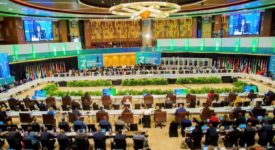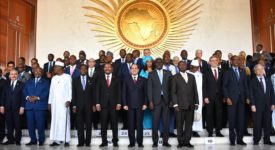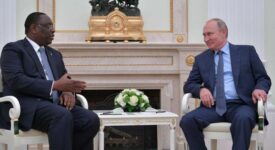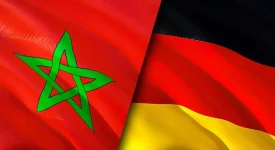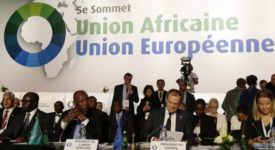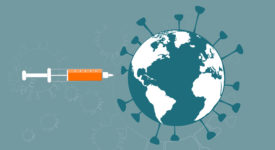‘Health is economy and economy is health’ is perhaps the single most important message that came out of the Africa Roundtable forum that was recently held in Berlin where decision-makers from politics, business and civil society met to discuss new ways for Europe and Africa to work together. Participating politicians and experts also focused on how to reset the Europe-Africa relationship and how to join forces to tackle issues such as the pandemic’s economic fallout, job creation and climate change. “We, Africa and Europe, need each other to tackle the big challenges, and we can learn a lot from each other in the process,” German President Frank-Walter Steinmeier said at the start of the online debate organized by the Global Perspectives Initiative (GPI).
All panelists agreed that one thing the pandemic had taught the world was, as Nigerian economist Oby Ezekwesili put it: “Health is economy and economy is health.” Picking up on her earlier warning that there would be no “business as usual” after the pandemic, the new WTO chief, Ngozi Okonjo-Iweala, specified that she intended to dismantle existing trade barriers for basic medical products, vaccines, and active ingredients. But Senegalese President Macky Sall cautioned that vaccinating global populations to restart the global economy alone will not solve Africa’s problems. “We must support the economic recovery through strong and innovative measures,” Sall said. Many panelists also concurred that the exaggerated perception of Africa as high-risk for business investments has significantly hampered much-needed investments on the continent.
Economist Oby Ezekwesili, a former Vice-President of the World Bank, co-founder and founding director of Transparency International, admitted the importance of economic growth in Africa, notably in an equal partnership with rich countries. But for this to happen required “the continent first taking responsibility for its development. There is no way that Germany or any other country can parachute development to Africa,” she said. But for a partnership to be equal, Europe needs to acknowledge its special responsibilities, for instance, regarding climate change, said Ska Keller, head of the Greens/EFA Group in the European Parliament. And, as Keller also pointed out, it was important not to see the green transition everybody agrees must come as separate from a social transition. To that end, the participants also emphasized the importance of access to clean and abundant energy for all on the African continent that “is critical for enhancing the incomes of rural communities and providing long-term climate resilience or, for that matter, economic resilience,” said Sierra Leonean agricultural economist Kandeh Yumkella.
Article Tags:
Berlin Forum · Frank-Walter Steinmeier · Kandeh Yumkella · Macky Sall · Ngozi Okonjo-Iweala · Oby Ezekwesili · Transparency International · World BankArticle Categories:
EUROPE'S NEIGHBORHOOD
